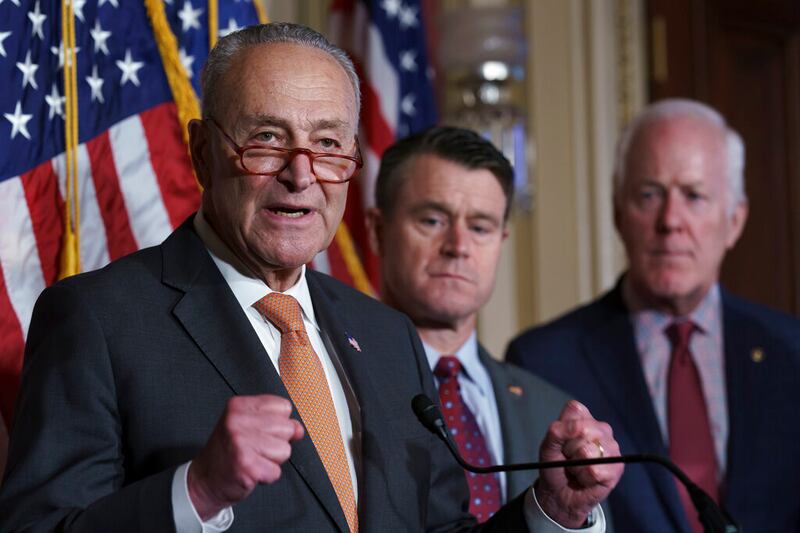On Wednesday, the Senate voted 64-33 to approve a $280 billion bill that subsidizes the domestic chip manufacturing industry, while investing a chunk of it in scientific research.
Why it matters: This “Chips and Science” bill aims to alleviate the pandemic-driven chip shortage that has impacted the supply of everything from cars to video games.
Details: Per Reuters, about $52 billion will be provided in government subsidies for semiconductor production, $24 for an investment tax credit on chip plants and more than $170 billion for research to compete with China.
What they’re saying: “We all knew that America faced a choice: we could keep underfunding science and innovation — and continue to let America fall behind our global competitors — or we could wake up to the challenges of this century, and empower the American people to unleash the next wave of discovery and scientific achievement,” said Senate Majority Leader Chuck Schumer, D-N.Y., in a press release.
“We knew that if we didn’t get there first, our rivals — chief among them the Chinese Communist Party — would likely beat us to the punch and reshape the world in their authoritarian image,” he added.
Worth noting: Sen. Bernie Sanders, the only Democrat to vote no, referenced the bill as a “blank check” without stipulations, addressed to the money-printing microchip industries.
“Let us build back the U.S. microchip industry,” Sanders said before the vote, per CNBC, “but let us do it in a way that benefits all of our society, not just a handful of wealthy profitable corporations.”
What’s next: The House is expected to vote on it later this week, placing the bill in front of Biden who will sign it into law.


